How to Set Effective Business Goals for Success
At Business Financials Inc., we know that setting clear, achievable goals is essential for driving business growth and ensuring long-term success. Whether you're a startup or an established company, effective goal-setting can provide direction, motivate your team, and measure progress. Here’s a guide to help you set and achieve your business goals.
1. Define Your Vision
Before setting specific goals, it's crucial to have a clear vision of where you want your business to go. Consider your long-term aspirations and how you envision the future of your company. This overarching vision will guide the goals you set and ensure they align with your overall strategy.
2. Set SMART Goals
To ensure your goals are actionable and measurable, use the SMART criteria:
- Specific: Define clear, precise objectives.
- Measurable: Establish criteria to track progress and determine when the goal is achieved.
- Achievable: Set realistic goals that challenge your team without being unattainable.
- Relevant: Align goals with your business’s vision and priorities.
- Time-Bound: Set deadlines to create urgency and focus.
3. Break Down Goals
Large goals can be overwhelming. Break them down into smaller, manageable tasks or milestones. This approach not only makes the goals more achievable but also provides regular opportunities to celebrate progress and adjust strategies as needed.
4. Align Goals with Your Team
Ensure that your goals are communicated clearly to your team. Everyone should understand how their individual roles contribute to the larger objectives. This alignment fosters teamwork and ensures that everyone is working towards the same outcomes.
5. Monitor and Evaluate
Regularly review your progress towards achieving your goals. Use key performance indicators (KPIs) and other metrics to assess how well you’re doing. If necessary, adjust your strategies based on the data and feedback you gather.
6. Adapt to Changes
The business landscape is constantly evolving. Be prepared to adapt your goals in response to market changes, new opportunities, or unforeseen challenges. Flexibility ensures that your goals remain relevant and attainable.
7. Celebrate Successes
Recognize and celebrate achievements, no matter how small. Celebrating milestones boosts morale and keeps your team motivated.
8. Seek Professional Advice
If you're unsure about setting or achieving your goals, consider seeking advice from financial professionals or business consultants. At Business Financials Inc., we offer expert guidance to help you set and reach your business goals effectively.
In summary, setting clear, SMART goals is a fundamental step in driving your business forward. By defining your vision, breaking down objectives, aligning with your team, and continuously monitoring progress, you can achieve success and growth for your business.
For more tips on financial management and business strategy, contact us! We’re here to support your journey to success!
THIS ARTICLE IS FOR GENERAL INFORMATION PURPOSES ONLY. BUSINESS FINANCIALS, INC. (BFI) IS NOT ISSUING SPECIFIC FINANCIAL OR TAX ADVICE. PLEASE CONSULT WITH A LICENSED FINANCIAL PLANNER, TAX ATTORNEY, OR ACCOUNTANT FOR ASSISTANCE WITH YOUR SPECIFIC SITUATION. IF YOU NEED HELP, WE INVITE YOU TO CONTACT US. WE WILL BE HAPPY TO MAKE RECOMMENDATIONS OR REFER YOU TO A LICENSED PROVIDER WHO MAY BE BEST SUITED FOR YOUR SITUATION.
Sources:
https://www.clearpointstrategy.com/blog/business-goal-setting
https://www.smartsheet.com/content/business-goals





